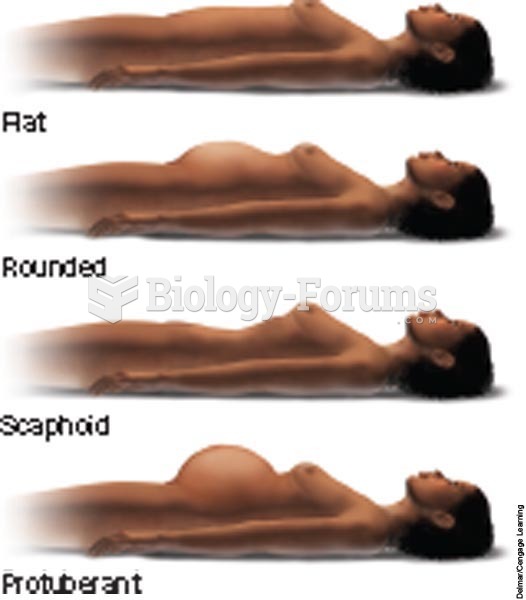|
|
|
The first oncogene was discovered in 1970 and was termed SRC (pronounced "SARK").
The human body's pharmacokinetics are quite varied. Our hair holds onto drugs longer than our urine, blood, or saliva. For example, alcohol can be detected in the hair for up to 90 days after it was consumed. The same is true for marijuana, cocaine, ecstasy, heroin, methamphetamine, and nicotine.
Increased intake of vitamin D has been shown to reduce fractures up to 25% in older people.
Bacteria have flourished on the earth for over three billion years. They were the first life forms on the planet.
IgA antibodies protect body surfaces exposed to outside foreign substances. IgG antibodies are found in all body fluids. IgM antibodies are the first type of antibody made in response to an infection. IgE antibody levels are often high in people with allergies. IgD antibodies are found in tissues lining the abdomen and chest.







